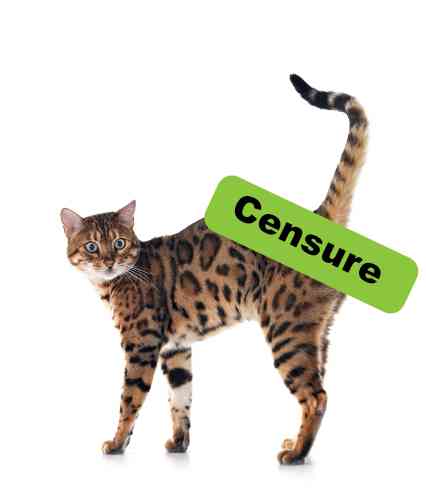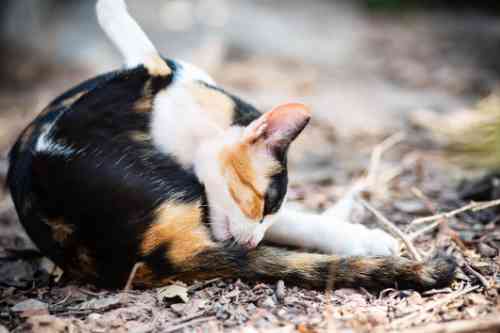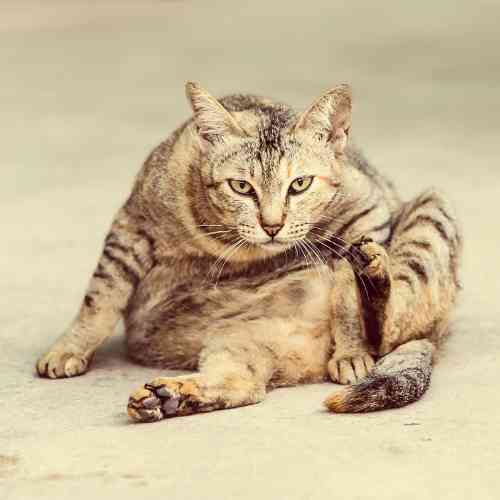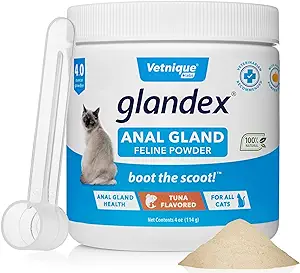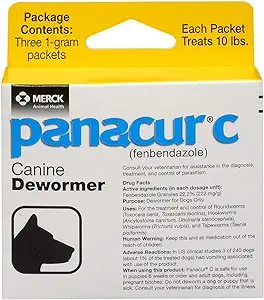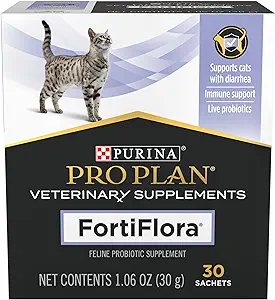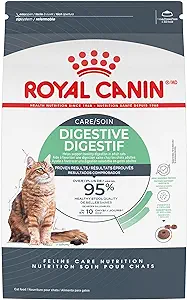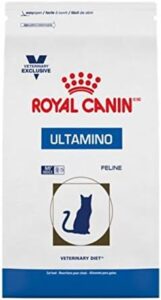Discharge from your cat’s anus
Is that bad?
Have you seen discharge coming out of your cat’s anus? Then you’re probably worried about it. In this article we will tell you the possible causes of this discharge and what symptoms you can see. And of course whether this is bad. In addition, we also give you the best treatment options per cause that you can apply yourself to make the discharge from your cat’s anus disappear. So read on quickly what the cause of the anal discharge is in your cat and how you can solve it.
How do you recognise discharge from your cat’s anus?
If your cat’s anus has discharge or a wet fluid coming out of it, this is abnormal. This discharge may be wrapped around his feces, but it can also come out of his anus independently. You recognise it as a liquid, snotty substance. It can smell terribly, but it doesn’t always have to be the case. One cat may be quite ill or suffer from it and the other may not even notice it.
What could be the cause of the discharge from your cat’s anus?
There are actually two possibilities that could be the cause of the discharge coming from your cat’s anus. On the one hand, it may be anal gland fluid. It is also possible that the discharge is formed in your cat’s large intestine. So in that case there is an irritated colon for some reason. We discuss both causes in more detail below.
Impacted anal glands
There are two glands on the side of your cat’s anus. We call these the anal glands. These glands normally produce anal gland fluid. Every time your cat strains to remove his feces from his body, he also tightens the muscles around his anus. And those muscles also squeeze the anal glands a bit. That anal gland fluid has a very specific smell for each cat. So every cat has its own anal gland odor. That’s one of cats’ ways to mark their territory. We humans generally find this smell quite stinky. It has a bit of a sickly-fishy intense smell.
Sometimes a cat’s anal glands are a bit overactive. Then they produce too much anal gland fluid. You may then see this discharge oozing from your cat’s anus. If this slimy substance comes out of your cat’s anus without your cat straining, then this is abnormal. As long as it doesn’t hurt your cat, there is no need to do anything about it. But we understand that you’ll find it very disgusting that he leaves that slimy, smelly substance everywhere when he sits with his buttocks on your furniture. In that case, you can read more about the anal glands and how to empty them on this page. We will also tell you more about anal gland inflammation there.
Large intestine problems
Another reason for discharge coming from your cat’s anus could be that your cat has a problem in its colon. The large intestine is the place where the stool is stored for a while and where most of the fluid from the intestinal contents is reabsorbed so that a more compact stool is created. To protect the intestinal wall of the large intestine, this intestinal wall makes a little discharge. It protects the intestine against mechanical damage of the intestinal contents, but also against digestive enzymes and substances. In addition, the layer of discharge around the stool helps to move the stool through the intestine more easily. And this discharge also provides a beautiful living environment for the bacterial intestinal flora that you need to have a healthy working body.
However, when the colon is “stimulated” too much, the mucous membrane in the colon can produce more discharge. In that case you will see that there is much more discharge surrounding the stool. Sometimes these are really big blobs. And of course, those blobs of discharge can always come out of your cat’s anus without defecating. The cause of this overstimulation of the large intestine can be several things. It could be a temporary virus, a parasite, an intestinal infection due to an allergic reaction or a food intolerance.
What symptoms do you notice in a cat if he has discharge coming out of his anus?
You may notice the following symptoms in addition to discharge coming out of your cat’s anus.
- Irritation to his buttocks with excessive licking, biting or grinding with his anus.
- Abdominal pain if there are colon problems
- Less active
- Being restless
- Diarrhea
- Very occasionally a little blood in the stool
- Decreased appetite
- Weight loss if it has been going on for a while.
Diagnosis of discharge from your cat’s anus
Usually it is not very difficult to recognize the difference between anal gland discharge and discharge that comes from the large intestine. The discharge of the large intestine almost always surrounds the feces. Anal gland fluid comes out mainly without stool. The anal gland fluid is also quite smelly. The discharge of the colon smells much less, but his stool can of course smell very bad due to the problem. If you have any doubts, you can always empty your cat’s anal glands (see treatment). If the discharge remains visible in the following days, it comes from the large intestine.
How do you treat your cat if discharge comes out of its anus?
You should of course try to figure out the difference between discharge from his anal glands and discharge from his colon. Treating the discharge from your cat’s anus depends on which of these two problems your cat has.
Anal gland discharge
If your cat suffers from overly active anal glands, it is usually sufficient to empty them. After that, the discharge from your cat’s anus will be gone. Although sometimes that is only temporary. This emptying is quite easy, but it is a dirty job. Be sure to wear disposable gloves because you cannot wash the smell off your hands. It can take up to 3 days before you no longer smell that odor.
If your cat continues to have this problem again and again, it is wise to add Glandex to his food. This ensures that the anal glands function healthy again and therefore less anal gland fluid is produced.
Large intestine discharge
Does your cat mainly have discharge around its stool? Then there’s a problem with his colon. Unfortunately, this can be caused by various things. That is why it is necessary to do a number of treatments until you see that the discharge from your cat’s anus clearly reduces. It is also best to follow this order. We have taken into account the costs, time to results and, above all, the frequency of occurrence to recommend this order.
Resolving parasites
First of all, it is necessary to give your cat an anti-parasitic treatment. And we don’t mean an ordinary simple deworming, but a broad-spectrum deworming. The only effective remedy for this that you can buy without a prescription is Panacur. This tackles all roundworms, hookworms and tapeworms. But it also works against single-celled parasites such as Giardia or Cryptosporidium. In most cases, they are the cause of the discharge from your cat’s anus. That is why this is the first remedy you should give. You give your cat 1 treatment once a day for 5 days. The product below is meant for dogs, but can be given to cats as well. You need to give your cat 50mg per kg bodyweight, so a quarter of one sachet once a day for a cat that weighs 5kg. After a week at the latest, you should notice that the excess discharge has dissolved.
Probiotics
If treatment with Panacur does not produce sufficient results, it is important to improve the intestinal flora in the large intestine. As a result of parasites or a virus that has long since resolved, the intestinal flora may be out of balance. Restoring intestinal flora is best done with probiotics, of which Fortiflora is one of the best. Normally giving this to your cat for a month is sufficient. But it is also allowed for life if your cat benefits from it. In any case, you should see that less discharge comes out of your cat’s anus after a few days.
Food
In 90% of cases the problem will be solved after the Panacur and Fortiflora. But unfortunately not for all of them. If your cat still has discharge from his anus after these treatments, there is probably an intestinal inflammation. This can be caused by diet, but the problem can also be even more complicated, for which you unfortunately need a vet. So let’s first look at a nutritional solution.
Food intolerance
There are two ways in which nutrition can cause colon inflammation. First of all, your cat may not be able to digest its food sufficiently. We also call this a food intolerance. The digestive enzymes and digestive juices should break the food into small pieces so that they can be absorbed into your cat’s body. But with some cats this “cutting in small peaces” is a bit more difficult. For example, they lack enough of a certain enzyme or the enzyme is just not powerful enough. The result is that too many nutrients are not used by your cat and therefore end up in the large intestine, as waste. In that case, the intestinal bacteria (intestinal flora) will be offered a lot of a certain undigested substance. And with that substance they produce irritating substances that make the intestinal wall get inflamed.
By simply giving your cat food that is easier to digest, this problem will be solved. His stool will then take on somewhat better shapes and the amount of discharge from your cat’s anus will decrease significantly. In this case too, you usually see recovery within a week. Or at least a clear improvement. One of the better foods for this problem is Royal Canin Digestive. Your cat needs this food for the rest of his life.
Food-allergy
If the above stated diet still does not provide a solution, there is one more treatment you can try for your cat. You can also give the treatment below as an alternative to the Gastrointestinal, but it is a bit more expensive and certainly not always necessary if there is discharge from your cat’s anus. But the food below also is easy digestible.
It is also possible that your cat has an allergic reaction to a substance in its food. This results in colon inflammation and discharge from your cat’s anus. A food allergy is an all-or-nothing reaction. If he only ingests 1 crumb of something he is allergic to, he will already have a full range of complaints. In this case, colitis (inflammation of his large intestine). It is therefore important that you give your cat an an-allergenic food. And temporarily stop giving him treats or other rewards. This food contains the nutrients your cat needs, but they are made so small that your cat’s immune system cannot respond to them. In other words, your cat continues to have the allergic reaction, but there is no substance to which your cat can react allergically.
The disadvantage is that it takes at least 4 weeks before you see results. Has it not changed the amount of discharge after 8 weeks? And have you not given your cat anything other than these kibbles? So no sweets, no slices of cheese or meat? Really just this food? Then unfortunately it is not a food allergy. Unfortunately, something else is going on with your cat. But if this has proven to be the solution, you can now slowly give your cat some extras and see if this continues to go well.
When do you go to your vet?
If a lot of discharge comes out of your cat’s anus or if your cat looks very sick, it is wise not to keep trying things yourself for too long. With a physical examination and possibly some additional tests, your veterinarian will be able to quickly make a clear diagnosis so that the right treatment can be started quickly. If your cat shows few complaints from the discharge from his anus, you can try the above treatments yourself.
The treatment at your vet is the same as what we suggest above. If the above treatments have not helped, your vet may prescribe additional anti-inflammatory medication. Or they advise you to look into your cat’s large intestine under anesthesia with a camera and, if necessary, to take pieces of tissue from the intestine for further examination. But hopefully you won’t even need to go to your vet. Good luck and get well soon for your cat.

